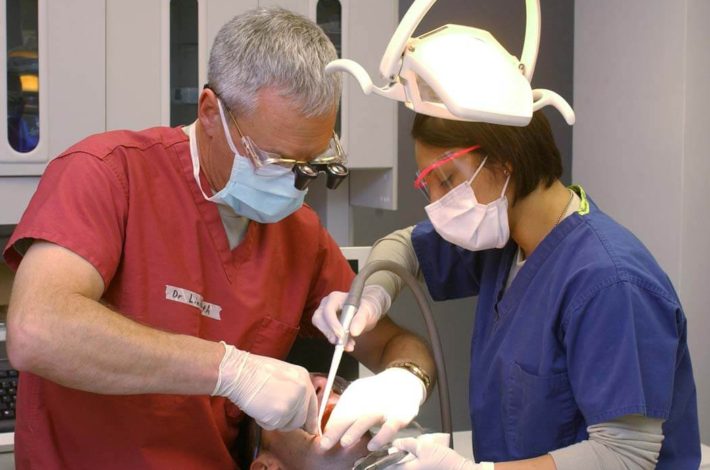Wisdom teeth are the double pairs of large teeth right at the back of a person’s mouth, one pair on both sides, one tooth on the top and one in the bottom. They are also called third molars. These teeth are more likely to emerge during the late teens or early twenties and hence the name. In a few cultures, these teeth are referred to as ‘teeth of maturity.’
Most teeth grow pretty normally; however, when the wisdom tooth props up, there are more chances for problems to develop as well. The pain symptoms that are produced can take a range of forms and are not essentially identifiable as a problem with the wisdom tooth.
Pain Symptoms and Causes of Wisdom Tooth
 Most problems with the third molars are usually an outcome of them being partially erupted or impacted or both. An impacted tooth is one that does not grow straight up out of the gums. Rather, it grows at an angle which means that there are chances for it to interfere with the neighbouring teeth, maybe growing into them and thrusting pressure on them. On the other hand, it may also grow out into the cheek resulting in abrasions and ulcers.
Most problems with the third molars are usually an outcome of them being partially erupted or impacted or both. An impacted tooth is one that does not grow straight up out of the gums. Rather, it grows at an angle which means that there are chances for it to interfere with the neighbouring teeth, maybe growing into them and thrusting pressure on them. On the other hand, it may also grow out into the cheek resulting in abrasions and ulcers.
A partially erupted wisdom tooth is the one that hasn’t completely emerged from the gum. This will result in the gum being prone to infection as there is a lot of opportunity for bacteria to get in and cause infection; this is the main reason for removing the wisdom tooth. Pain symptoms generally include red and swollen gums, headaches, toothache and pain that radiates down the jaw and neck extending into the shoulders.
Impacted Wisdom Tooth Extraction
If the patient suffers from prolonged pain or has an infection, the Emergency Dentist Perth Dr clinic may have to remove the wisdom tooth. Though infections can be treated using antibiotics initially, there are more chances for these infections to recur. If these bacterial infections look like they will result in bigger problems in the future, the wisdom tooth has to be removed for sure.
Surgery is mostly done under general anesthetic even though sedation and local anesthetics are also used sometimes. This depends mainly on how complicated the problem is. If the teeth are very badly impacted, for instance, the procedure becomes more complex. Later, you may suffer from some complications after dental surgery, but your dentist will be suggest you good remedies on these.
In conclusion, a lot of people have issues with their wisdom teeth. Symptoms may be diverse, but the ideal dental treatment is to get your wisdom tooth extracted so that you avoid problems in the future. Make sure you get this procedure done by a reliable dentist in ADC Campbelltown Dental Care.

